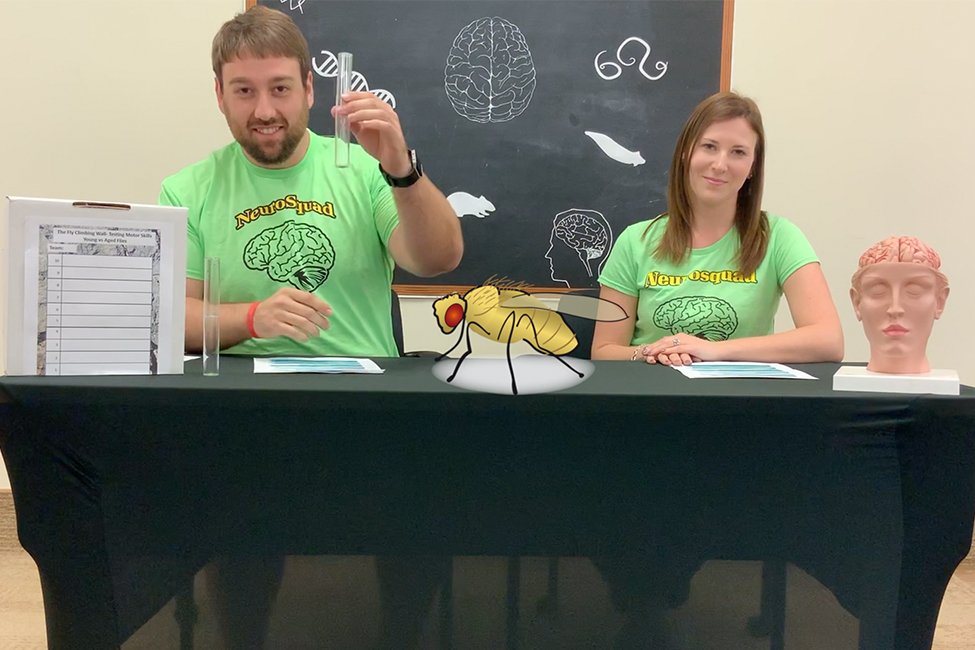FAU Brain Institute Ascend Program Provides Virtual Lessons for Kids

by Lynda F. Rysavy | Friday, Mar 27, 2020
Florida Atlantic University’s Brain Institute, in partnership with the Stiles-Nicholson Foundation, is addressing the national shortage in STEM (science-technology-engineering and math) career-oriented students with ASCEND (Advancing STEM: Community Engagement through Neuroscience Discovery)- an innovative education platform targeting middle and high school students in Palm Beach County. ASCEND’s semester-long neuroscience program, NeuroExplorers, is led by professional neuroscientists and trainees (NeuroSquad) using cutting-edge educational tools, including hands-on virtual and augmented reality applications, age appropriate neuroscience experiments, and field trips to science labs. NeuroExplorers participants also engage in monthly podcasts, Brain Bites, (also accessible to the public) and discuss brain science topics in a remote learning platform, FlipGrid, where they can use videos, images, or graphics to communicate science.
During these unprecedented times, the NeuroSquad team is eager to boost its virtual education content to ignite curiosity about brain science. For this month, NeuroExplorers was unable to meet in person to discuss the results from their fruit fly behavior experiment and the importance of science communication. Students performed a climbing test with different aged fruit flies (ranging 2 days old to 3 weeks) to understand what happens to our movement as we age. Fruit flies typically only live about 60 or 70 days, so a fly that is 20 days old is approximately the same as a 25 year old human! Fruit flies are a popular model organisms used to study neuroscience topics, in this case, neurodegenerative disease (what happens to your neurons as you age?). A recap of the previous lesson and the students’ data were presented in a short, educational video that had it all- science, jokes, and dramatic music! NeuroSquad leaders, Paula Gajewski-Kurdziel, Ph.D. and David Cinalli, led the discussion by explaining how scientists use graphs to explain their data and asked the students, “Did your hypothesis predict what would happen with the flies?” Paula and David emphasized that while graphs are important to describe science they can often be difficult to understand. As scientists, we often ask ourselves “What’s the best way to communicate my science?” The virtual lesson ended with an assignment for NeuroExplorers participants to channel their creativity to describe the class’s fruit fly experiment in their response videos on FlipGrid. An illustration of the fly life cycle was giving as an example to get their creative minds thinking. This illustration used a play on the word “cycle” to describe the life cycle of a fruit fly. The NeuroSquad team is looking forward to the response to the videos. While at home, we also hope the students will get their siblings and parents involved in making a science skit. By making science fun, we are able to reach a broader audience. NeuroSquad leaders will continue creating and sharing more virtual brain science content for NeuroExplorers and will make content available to educators and the public.
ASCEND program content will also be available through the new, Palm Beach County Virtual STEM Collaborative, a comprehensive digital resource for PBC educators moving to the virtual learning space launching on Friday. The Collaborative will include STEM lessons, livestream demonstrations, etc. from STEM organizations in PBC.
Watch video